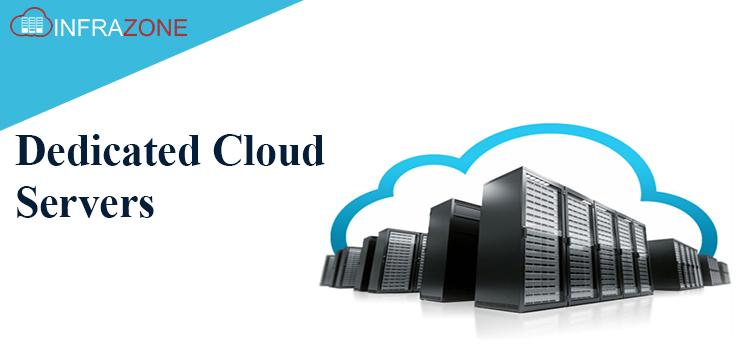
Cloud computing has revolutionized the way businesses and handle manage their digital infrastructure. Among the various cloud hosting options available, dedicated cloud servers have emerged as a powerful solution. This blog post aims to provide a comprehensive understanding of dedicated cloud servers, exploring their definition, features, and the situations in which they are most beneficial. By delving into the advantages and considerations associated with dedicated cloud servers, we can determine when it is necessary to opt for this specialized hosting solution.
What is a Dedicated Cloud Server?
A dedicated cloud server is a hosting environment that combines the benefits of dedicated physical servers with the flexibility and scalability of cloud computing. Unlike shared hosting or virtual private servers, dedicated cloud server provide exclusive resources and infrastructure to a single user or organization. These servers are hosted in data centers and offer enhanced performance, security, and control.
Advantages of Dedicated Cloud Servers:
Dedicated cloud servers offer several advantages that make them a preferred choice for businesses with specific requirements. These advantages include:
Performance: Dedicated cloud servers provide exclusive resources, such as CPU, RAM, and storage, ensuring optimal performance even during peak usage periods. This exclusivity eliminates resource contention, resulting in consistent and reliable performance.
Scalability: Dedicated cloud servers offer seamless scalability, allowing businesses to scale their resources up or down based on their needs. This flexibility is particularly useful for handling sudden traffic spikes or accommodating increased workloads without any downtime or service interruptions.
Security: With dedicated cloud servers, businesses can enjoy enhanced security measures and data protection. As the server is solely dedicated to a single user or organization, the risks of unauthorized access or data breaches from other users are significantly reduced. Dedicated cloud servers often come with advanced security features, including firewalls, intrusion detection systems, and encryption protocols.
Control and Customization: Dedicated cloud servers grant users extensive control over their server environment. This level of control enables customization of software, operating systems, security configurations, and network settings, catering to the specific needs of the business. It ensures compatibility with unique applications and allows businesses to optimize performance according to their requirements.
When Do You Need a Dedicated Cloud Server?
While shared hosting or virtual private servers may be suitable for many businesses, there are specific situations where opting for a dedicated cloud server becomes necessary. Here are some scenarios when a dedicated cloud server is beneficial:
High Traffic Websites: Websites experiencing heavy traffic require dedicated resources to ensure optimal performance and user experience. A dedicated cloud server can handle increased traffic without compromising speed or availability.
Resource-Intensive Applications: Applications that require significant computing power or extensive storage can benefit from dedicated cloud servers. Resource-intensive tasks such as data analysis, machine learning, or video processing can be efficiently performed on dedicated servers.
Enhanced Security Needs: Businesses dealing with sensitive data, such as financial institutions or healthcare providers, require a high level of security. Dedicated cloud servers provide an isolated environment, reducing the risk of data breaches and unauthorized access.
Compliance Requirements: Certain industries, such as finance, healthcare, or government sectors, have specific compliance regulations. Dedicated cloud servers allow businesses to meet these compliance requirements by offering enhanced security measures and dedicated resources.
Custom Software and Configuration: Businesses with unique software requirements or complex application stacks often require customization and specialized configurations. Dedicated cloud servers offer the flexibility to install and configure software according to specific needs, ensuring optimal performance and compatibility.
Growing Business Demands: As businesses grow, their hosting needs evolve. Dedicated cloud servers provide scalability and flexibility, allowing businesses to adapt to increasing demands and accommodate future growth without the need for significant infrastructure changes.
Performance-Critical Applications: Applications that require consistent and high-performance levels, such as e-commerce platforms or real-time communication systems, benefit from dedicated cloud servers. These servers ensure stability, speed, and reliability, resulting in improved user satisfaction.
Conclusion:
Dedicated cloud servers offer a powerful hosting solution for businesses and individuals with specific requirements. With their exclusive resources, scalability, enhanced security, and customization options, dedicated cloud servers provide optimal performance and control over the hosting environment. By assessing factors such as website traffic, application needs, security requirements, and business growth plans, organizations can determine when it is necessary to transition to a dedicated cloud server. Embracing the advantages of dedicated cloud servers enables businesses to meet their unique demands and ensure a robust, scalable, and secure hosting infrastructure.
